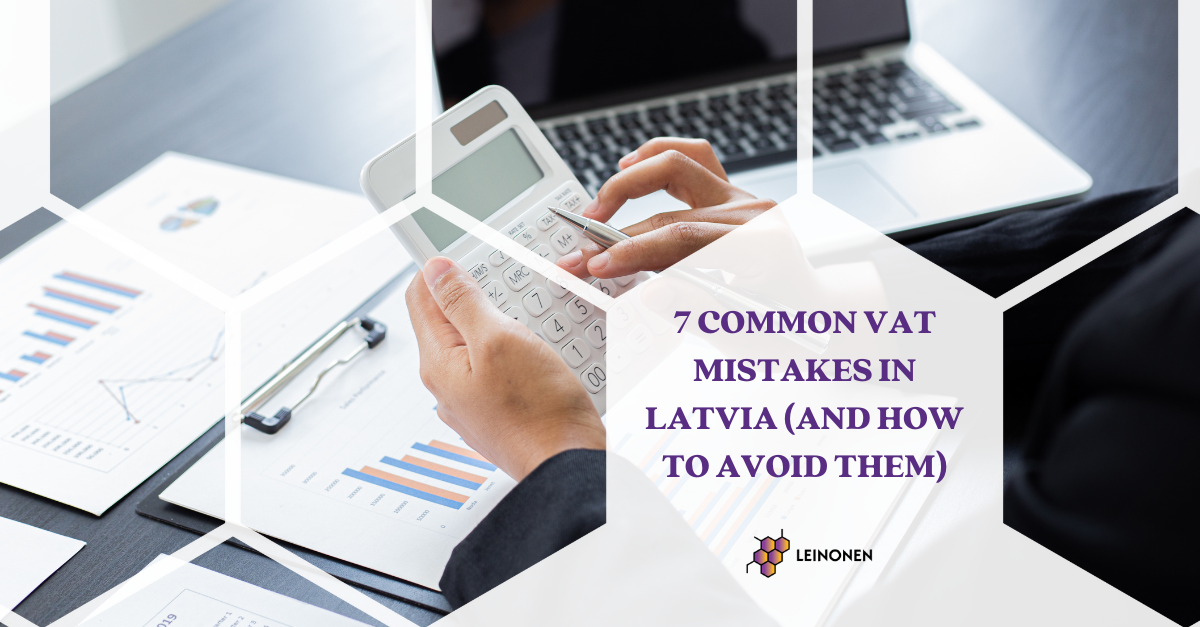Value added tax (VAT) is a type of consumption tax used in the European Union (EU). While VAT in Latvia is paid by the final consumer, it is a company’s responsibility to apply the right VAT rate to their products or services. Businesses are also responsible for collecting, correctly reporting and paying this tax on behalf of their customers.
VAT rates in Latvia – A Brief Overview
The standard VAT rate in Latvia is 21%, but reduced VAT rates of 0%, 5% and 12% are applicable to certain products and services:
- 0% VAT rate is applied to things like exports, ship and aircraft supplies, and supplies of non-community goods in customs warehouses and free zones. It is important to note that 0% VAT is different from being VAT exempt.
- 5% VAT rate is applied to printed publications like books and magazines.
- 12% VAT rate is applied to things like medicines and medical devices, special food for infants, wood and heat supplies for household consumption, and fresh fruits and vegetables.
A comprehensive list of goods and services subject to each VAT rate can be found in Latvia’s VAT law.
Common VAT Mistakes in Latvia
Navigating VAT rules can be daunting, especially for foreign-owned companies with little experience in Latvian VAT regulations.
Here are 7 mistakes we frequently encounter as tax experts:
- Incorrect deductions. Businesses or individuals sometimes fully deduct input tax for costs where there are limits imposed on this (e.g., business lunches, event organization and company cars).
- Incorrect prorate calculation. This mistake is often made when a company deals with both VAT taxable and VAT non-taxable transactions.
- Applying the wrong VAT rate. For example, applying a 0% or 5% VAT rate to a product or service subject to the standard 21% VAT rate.
- Not reporting VAT promptly. Doing VAT calculations at the wrong time can lead to late reporting that results in penalties.
- Incorrectly applying tax to specific VAT regimes. For example, businesses may apply a reverse charge in cases where this is not appropriate.
- VAT exemption errors. Understandably, many companies mistake 0% VAT for VAT exemption. However, products and services subject to 0% VAT are reported and taxed differently to those that are VAT exempt. VAT on exempt goods and services should be prorate calculated, as there is no VAT deductible. On the flipside, input tax is deductible on goods and services subject to the 0% VAT rate (e.g. exports). Some financial services are also exempt from VAT in Latvia, but the VAT law does not clearly specify which. This can sometimes lead to incorrect application of VAT exemption.
- Documentation errors. These errors are common and often include things like incorrect reporting periods, and not providing the right source documents to justify applying a reduced VAT rate (e.g., 0%). Without adequate supplementary documentation, the tax authorities may challenge a company’s VAT deduction rights.2
What are the Penalties for VAT Mistakes in Latvia?
For Incorrect Filing: Incorrect filing can lead to errors in tax calculations and ultimately non-declared VAT. The penalty for this is a fine of up to 30% of the unpaid amount, plus interest of 0.05% of the unpaid tax per day.
For Late Filing: The State Revenue Service (SRS) can impose a penalty of up to €140 for late submission of a VAT return. If the VAT return has not been filed within 30 days after the deadline, the SRS may also exclude the taxpayer from the VAT payer register.
VAT Mistakes in Latvia: A Frequently Encountered Case Study Example
A company was finding it hard to figure out whether their goods were subject to VAT at a standard or reduced rate, and ultimately opted to incorrectly apply the reduced VAT rate. A situation like this could lead to SRS penalties.
With the support of accountants who have knowledge of VAT rules in Latvia, situations like this can be avoided.
How do Changes to VAT Regulations Affect Businesses?
Changes to laws surrounding VAT in Latvia can easily lead to mistakes being made by businesses. For example, from 1 January 2024 to 31 December 2024, supplies of fresh fruit, berries and vegetables are subject to the reduced 12% VAT rate. As these goods were previously subject to the 5% VAT rate, this could lead to the incorrect rate being applied and reported by businesses. And as we have already discussed, incorrect reporting can result in late payments and, ultimately, fines and other penalties.
How to Avoid Making VAT Mistakes in Latvia
When managing VAT in Latvia, seeking training and resources from tax advisors from the outset is highly recommended. This is especially advisable if your business is complex, or if you are dealing with new types of business transactions. If your company has received penalties or interest from the tax authority due to previous VAT mistakes, finding expert support will be particularly beneficial.
If your company deals with cross-border business, VAT regulations and rates can be confusing. Leinonen have been offering expert consultation and training for foreign-owned businesses in Latvia for 27 years. During this time, our tax, payroll and accounting experts have supported more than 270 clients. Our 50+ employees with local and industry-specific expertise reliably manage 70+ payrolls each month.
Contact us today to find out how we can help your foreign-owned company avoid common VAT mistakes in Latvia.





